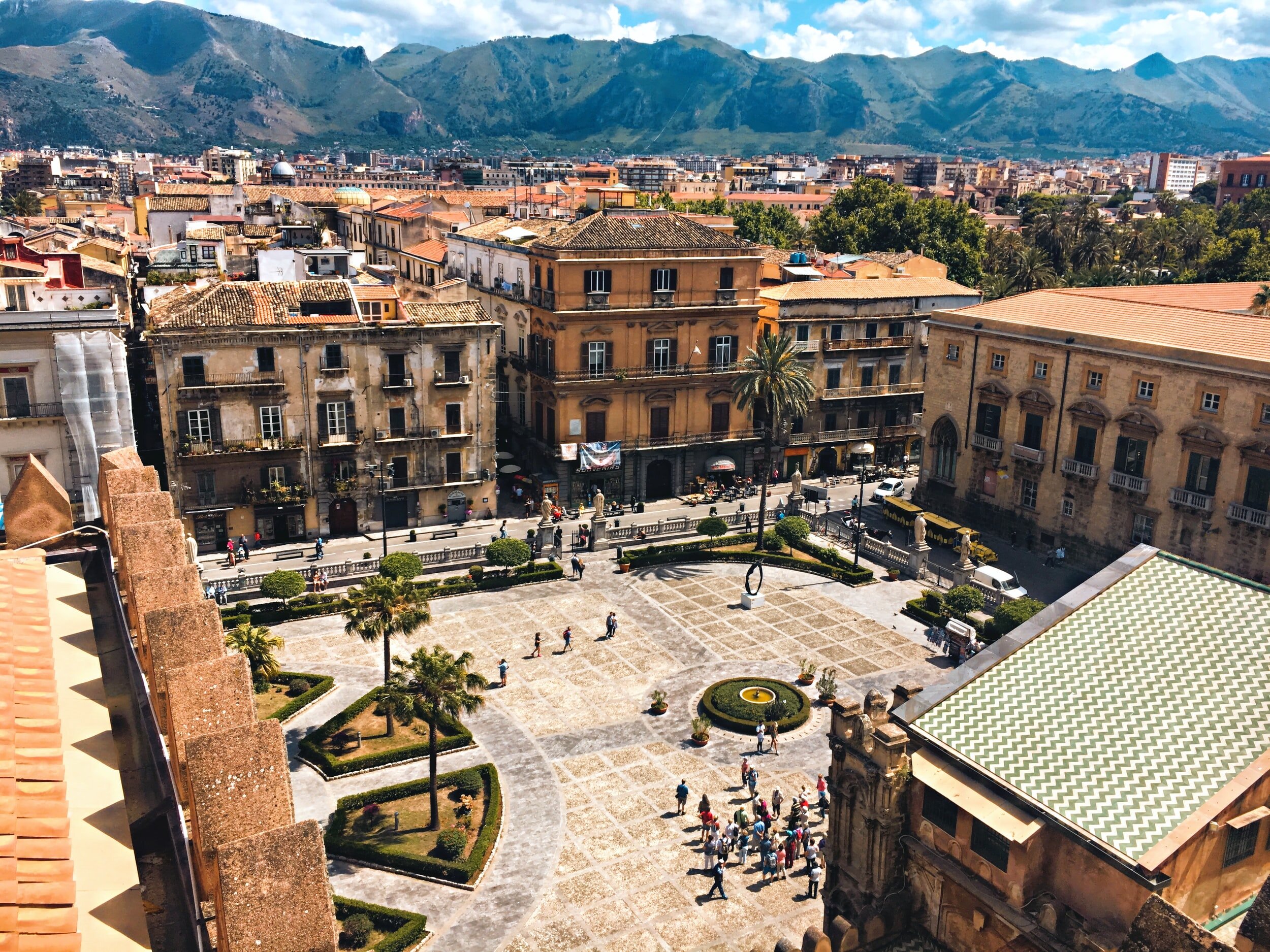To the Man I Believe Was Good

You were what, seventy? Eighty? To a teenager, you were simply old, and somehow, in aging, you had lost your threat. This was the only day I spent in Sicily, having ridden there on a train that seemed only finger-bolted together, then a ferry that made sounds like a great and dying beast. I hadn’t showered in days, I was hungry, I’d been alone for a week, I had almost run out of money, I wore a backpack the size of a toddler, and still, when I came out of the Palermo station, a prepubescent boy pinched my ass so hard in passing it later hurt to sit. I cursed him out, and when he laughed, I wept. This was not a shining moment in my life.
Palermo was hot and seemed populated mainly by pigeons, and the youth hostel had no available beds. I was resolute in my misery. I have a blurred impression of sun on ruins, tan buildings, dusty trees. This may or may not be Palermo in real life, but it is the Palermo of my imagination, and there it will stay. I have no desire to revisit this place.
After the pinch and the announcement of homelessness for the night, I sat at an outdoor table at a café to gather myself. There you came, Enrico Ferrante. You walked with a cane; your pants were creased. The skin of your face was flaking around the nose in dry spots. But you spoke beautiful English, and I remember we talked about Bach because you were very cultured and I’d had a musical theory class in the spring and so I said a few things about fugues. You bought my coffee, then you bought me some kind of drink that was so bitter I couldn’t drink it, and only decades later tasted again as a Negroni. I loved it in this new incarnation of myself.
And then, as the sun started to go down over the little square where we sat, you suggested that I come home with you. You had leaned forward and were smiling gently. I noticed how clean your fingernails were and studied them, thinking.
Now I see that girl I was, dirty and blonde and skinny from hunger, and I want to shout at her, but I was raised in a warm, small place where people were mostly kind, and so that dusk, no alarm bells went off in me. Your apartment must have been like this: flecks of gold dust in the light of the window, a yellow cat, a piano and a great heavy chair passed down from your mother. I see it all so clearly, though in the end I never went with you, because, between the bitterness of coffee and the bitterness of Campari in my mouth, I understood that Palermo was no place for me, would never be my place, that there was something malign there. Places are like people, and sometimes inexplicable antipathies arise out of nowhere. Another train, another ferry that evening would come and take me away.
I left you with my address and you wrote me a gorgeous letter, but you included a photograph of yourself in a blue Polo shirt. In front of my car, you’d written on the back, and the car was a cherry-red Lamborghini, but it was clearly also in motion, driving away from you. I was naïve but not entirely so, and it made me sad to think that you believed I’d believe this. And so I never answered, and I never discovered whether your gentleness that afternoon was truly kindness for a bedraggled stranger, or whether you were the predator two decades have taught me you might have been.
But this is the power of memory: the person who owns it can morph it to her desire. I’d like to judge you for the intense courtliness with which you treated me, the conversation, the sunlight in which we sat. I won’t ever know the truth, but I choose to believe you were good and that your arrival took me away from worse. So thank you, Enrico Ferrante, for what didn’t happen, for what you didn’t do, for what I didn’t find in that menacing dreamland of Palermo, for the way your gentle intervention sent me away.
ABOUT THE AUTHOR
Lauren Groff is the author of four books, most recently Fates and Furies, a finalist for the National Book Award and National Book Critics Circle Award. Her favorite place on nobody else's list is her house in Gainesville, Florida.
Header photo by Michele Bitetto
